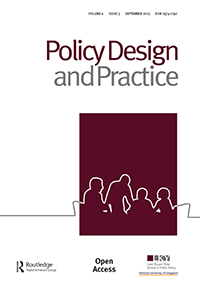A global digital identity for all: the next evolution
IF 2.6
Q1 PUBLIC ADMINISTRATION
引用次数: 1
Abstract
This paper chronicals the emergence of digital identity as a legal concept, how digital identity has grown in importance at the national level over the past decades and is now poised to become even more important internationally. This work builds on existing scholarship, to consider the next evolution of digital identity from what is now essentially a national concept into a global, legal concept. The examination looks to the likely emergence of a global digital identity for individuals in the near future and asks how that could be achieved. The authors examine the use of blockchain technology as a possible foundation of a global digital identity, along with the necessary development of existing international law on individual rights to support a global digital identity for all. Blockchain is viewed as relatively more secure and it enables individuals to have more control over how their identity information is managed and used. Blockchain’s traceability provides advantages for government and the private sector in managing and verifying identity. It aids the integrity of identity information and related transactions. However, it is important to note that, while blockchain has advantages, its relative immutability can lead to the creation and use of false digital identities that cannot be easily detected or corrected. As this paper discusses, this aspect can undermine the integrity and reliability of digital identity nationally and internationally. Given that blockchain technology is fallible, the authors argue that international law has a vital role now and in the future in recognizing the right to digital identity and establishing norms of conduct.所有人的全球数字身份:下一个演变
本文记录了数字身份作为一个法律概念的出现,以及数字身份在过去几十年里如何在国家层面上变得越来越重要,现在在国际上变得更加重要。这项工作建立在现有的学术基础上,考虑数字身份的下一步演变,从现在本质上是一个国家概念到一个全球性的法律概念。该研究着眼于在不久的将来可能出现的个人全球数字身份,并询问如何实现这一目标。作者研究了区块链技术作为全球数字身份的可能基础的使用,以及对现有个人权利国际法的必要发展,以支持所有人的全球数字身份。区块链被认为相对更安全,它使个人能够更好地控制如何管理和使用他们的身份信息。区块链的可追溯性为政府和私营部门管理和验证身份提供了优势。它有助于身份信息和相关交易的完整性。然而,值得注意的是,尽管区块链具有优势,但其相对不变性可能导致创建和使用不容易检测或纠正的虚假数字身份。正如本文所讨论的,这方面可能会破坏国内和国际数字身份的完整性和可靠性。鉴于区块链技术是容易出错的,作者认为,国际法在现在和未来在承认数字身份权和建立行为规范方面发挥着至关重要的作用。
本文章由计算机程序翻译,如有差异,请以英文原文为准。
求助全文
约1分钟内获得全文
求助全文
来源期刊

Policy Design and Practice
PUBLIC ADMINISTRATION-
CiteScore
10.30
自引率
4.30%
发文量
19
审稿时长
13 weeks
期刊介绍:
 求助内容:
求助内容: 应助结果提醒方式:
应助结果提醒方式:


